Answered step by step
Verified Expert Solution
Question
1 Approved Answer
business management Question 1: The management team of an organization can control all external forces or factors. A. True B. False Question 2: Planning is
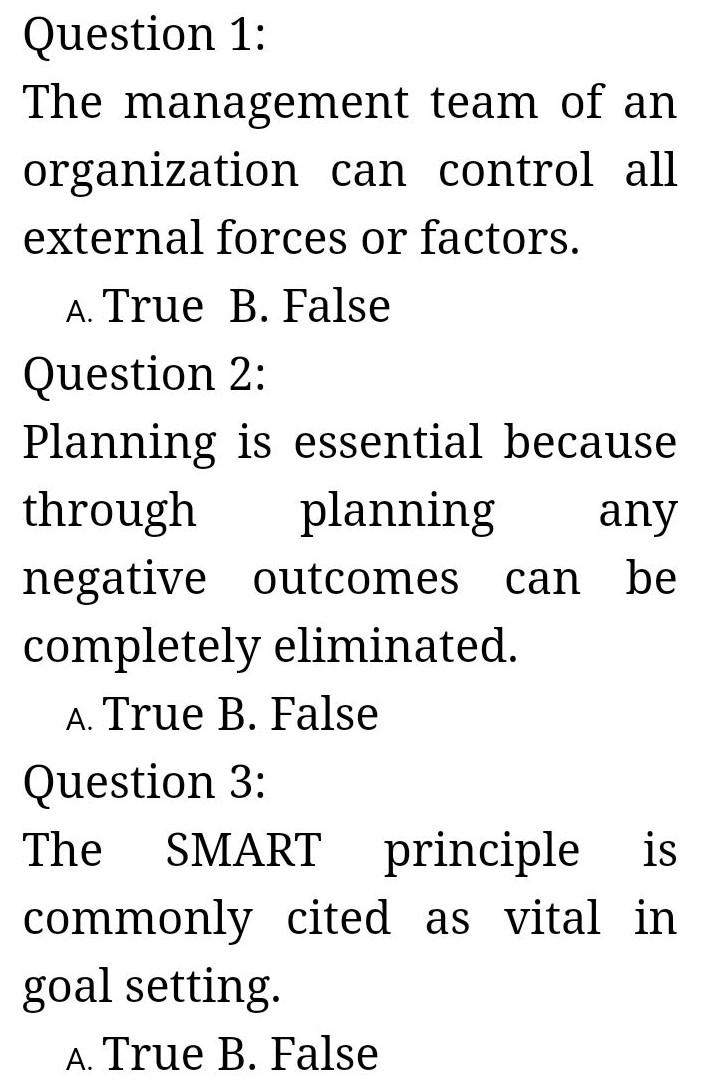
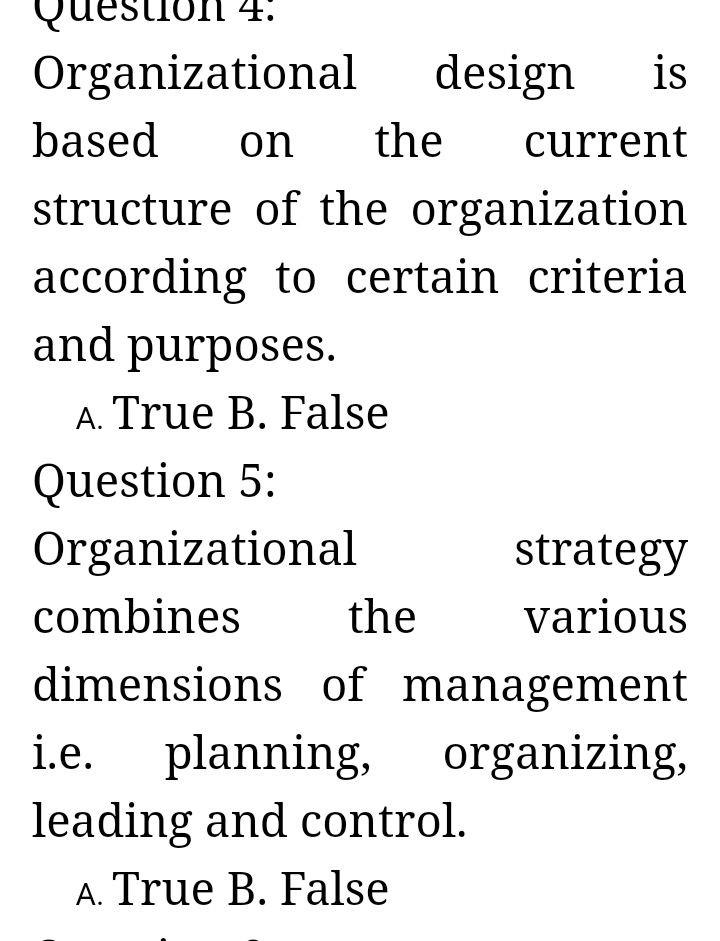
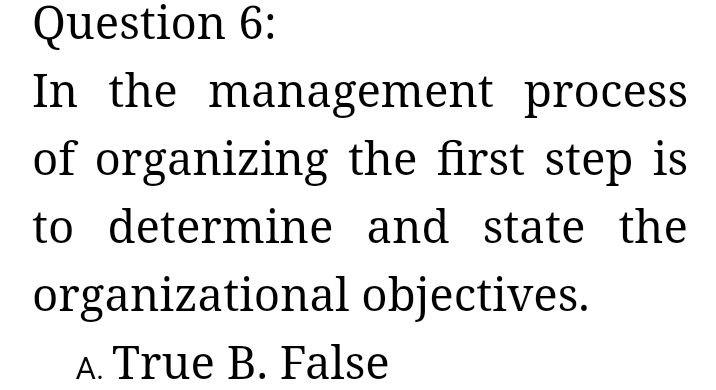
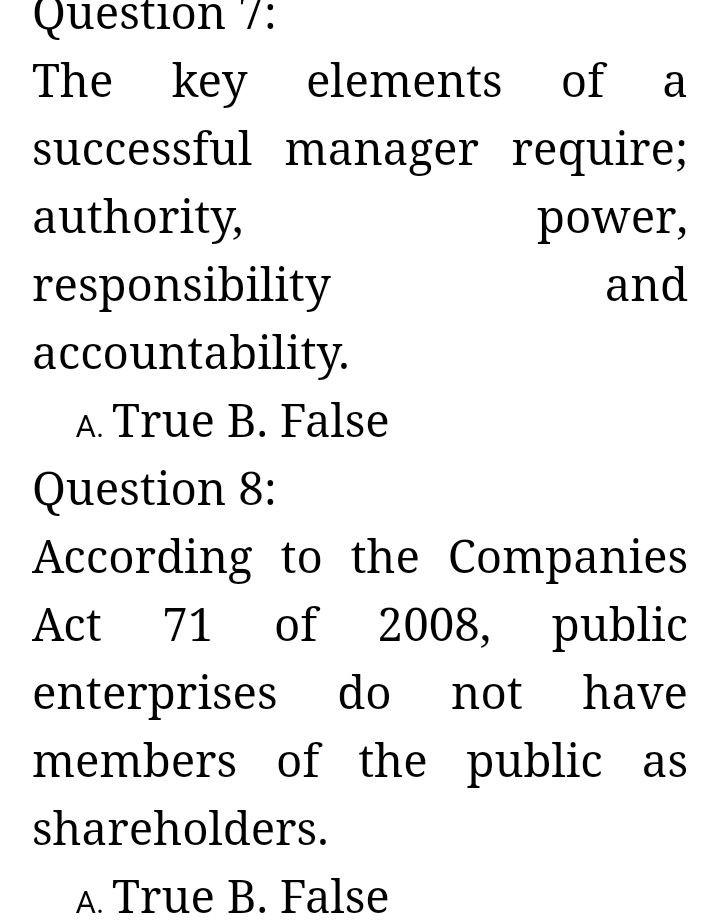
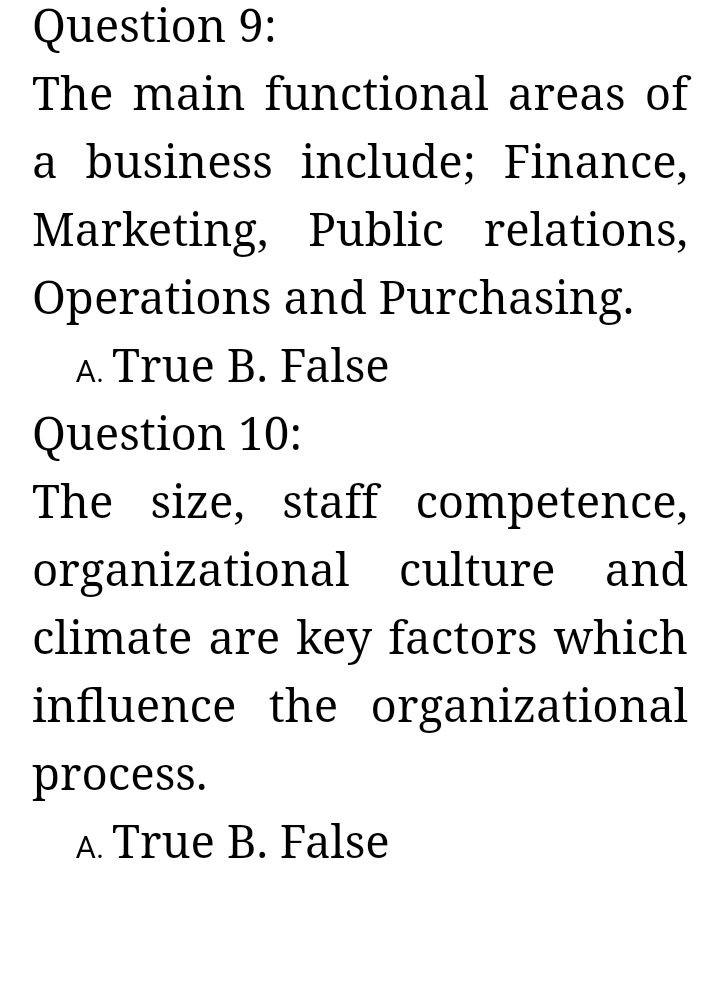
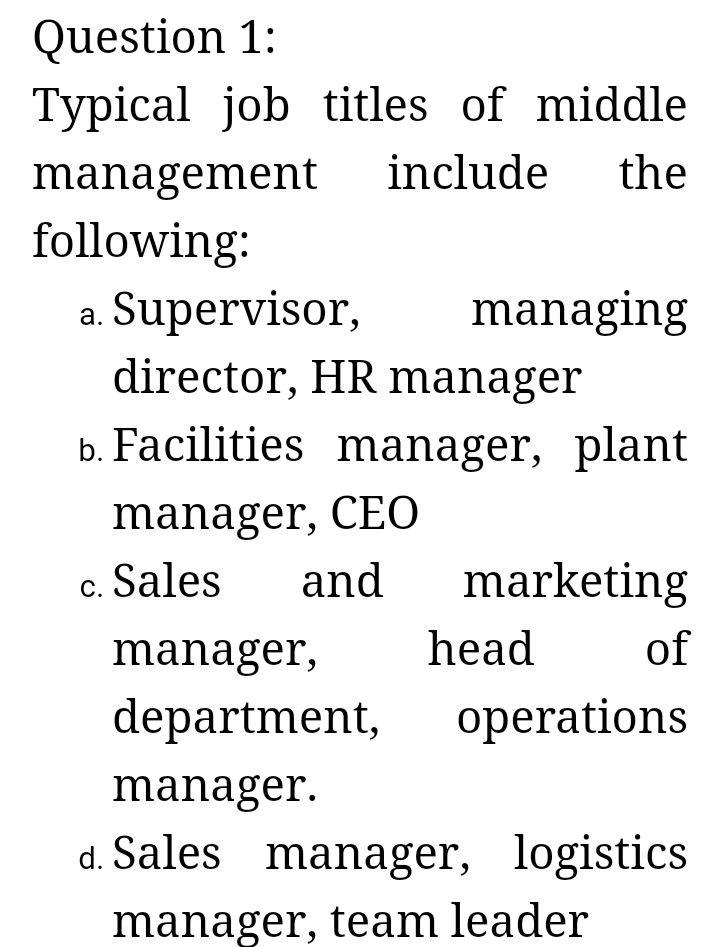
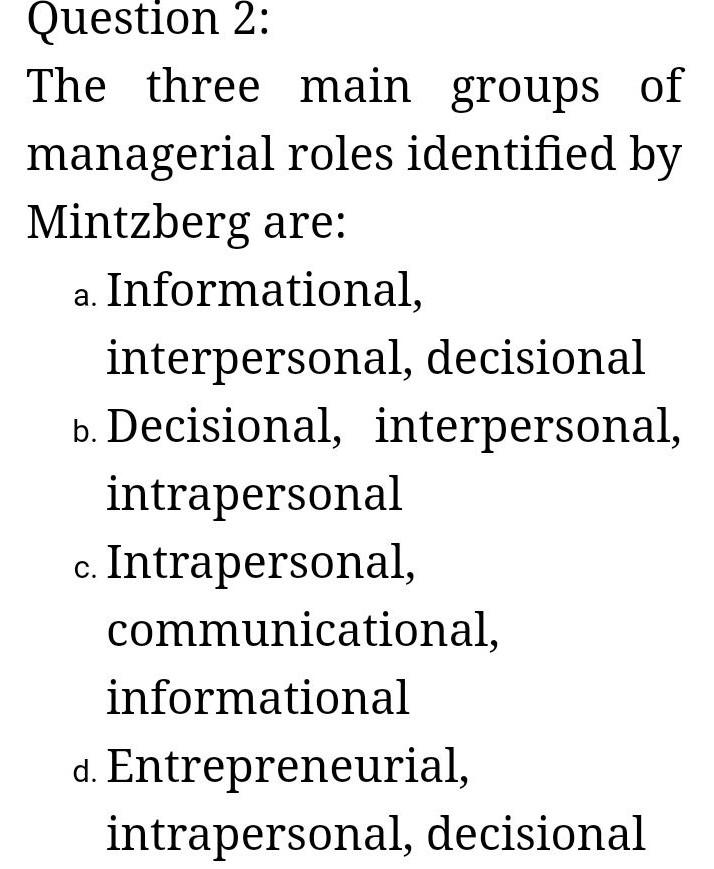
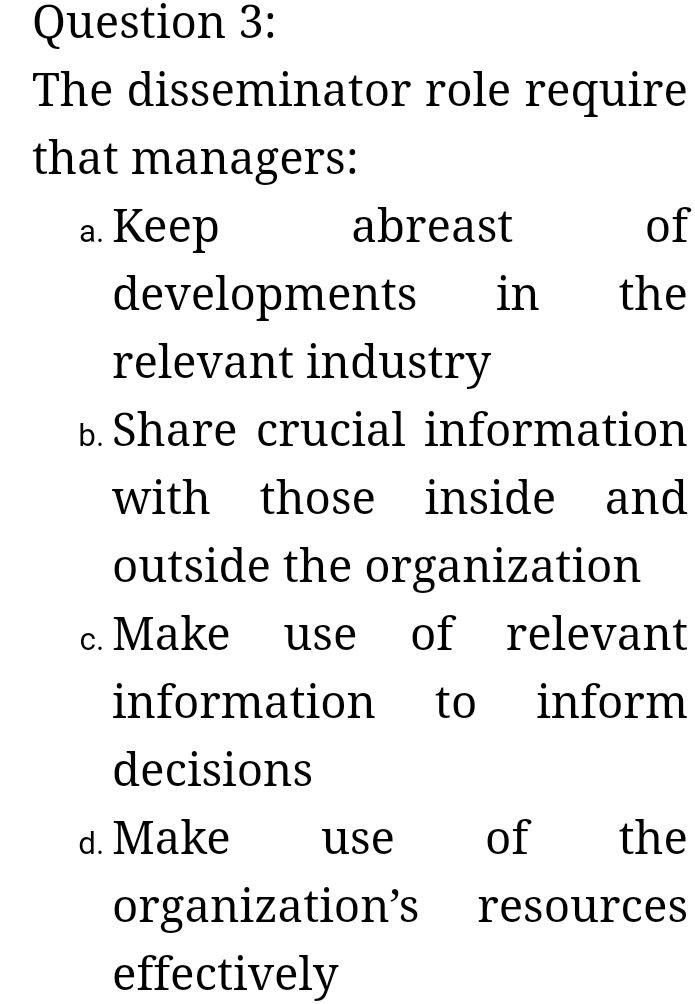
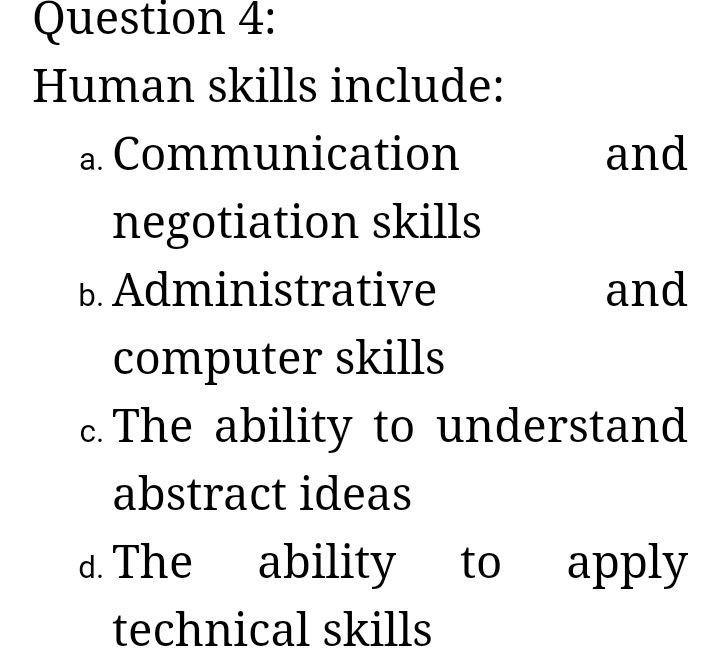
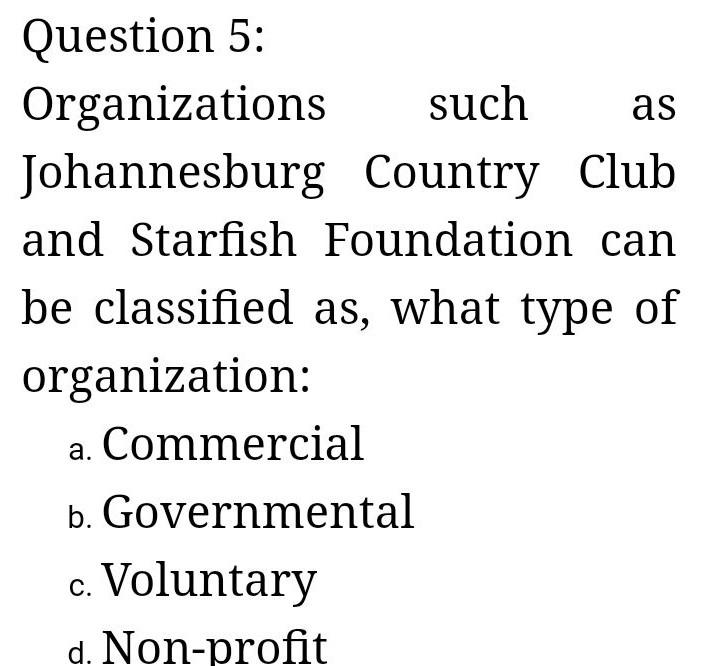
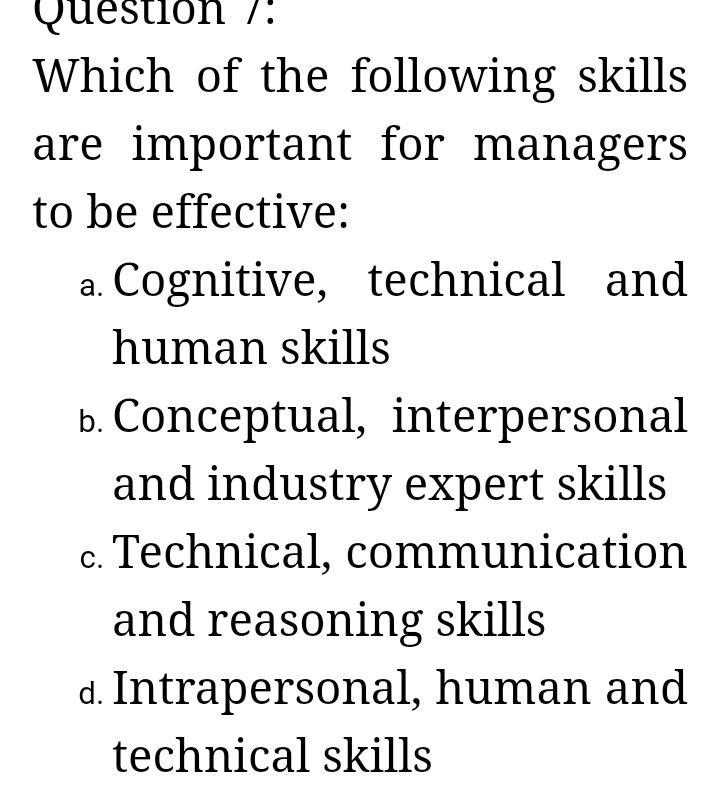
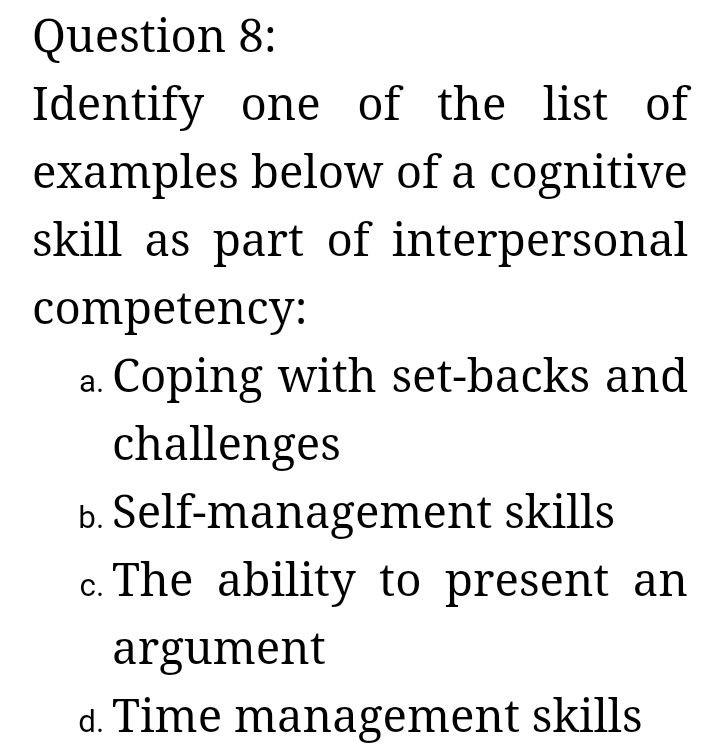
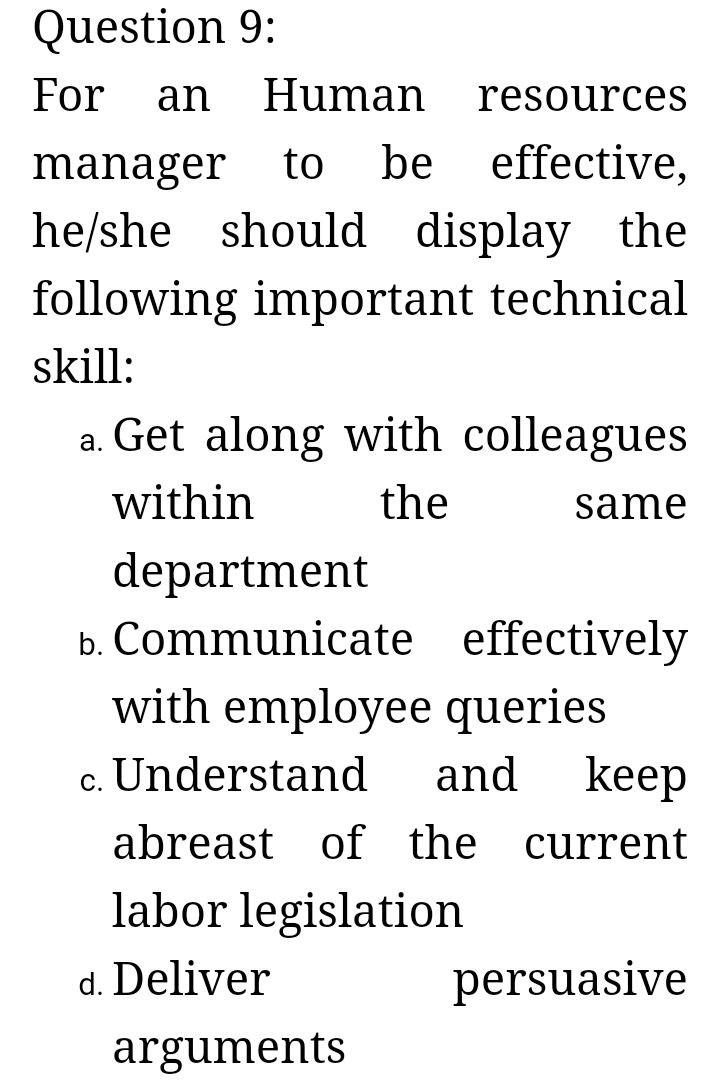
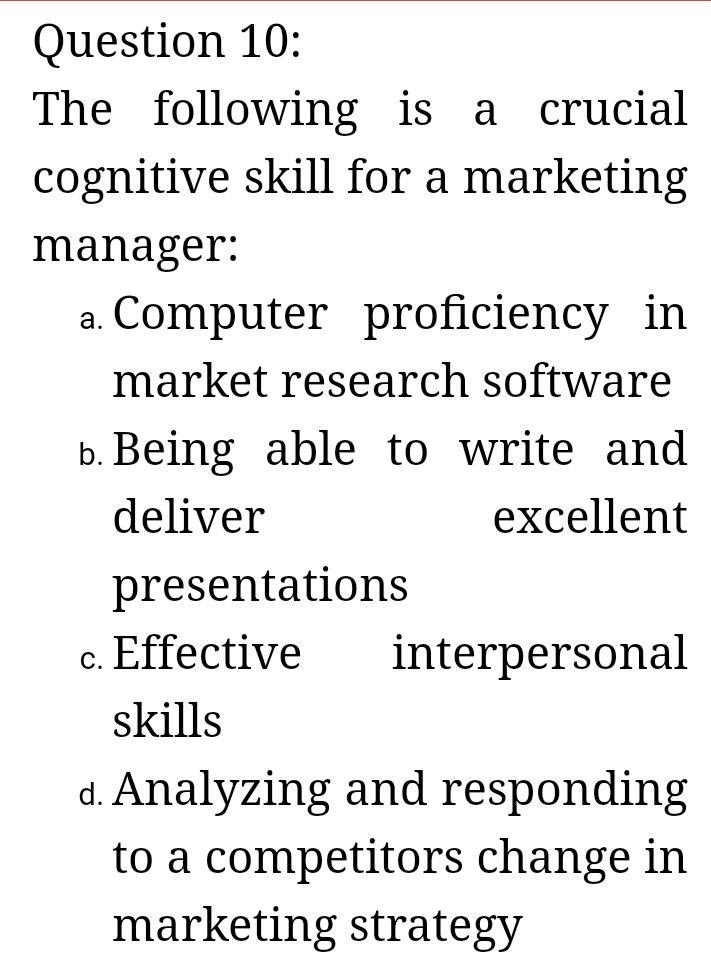
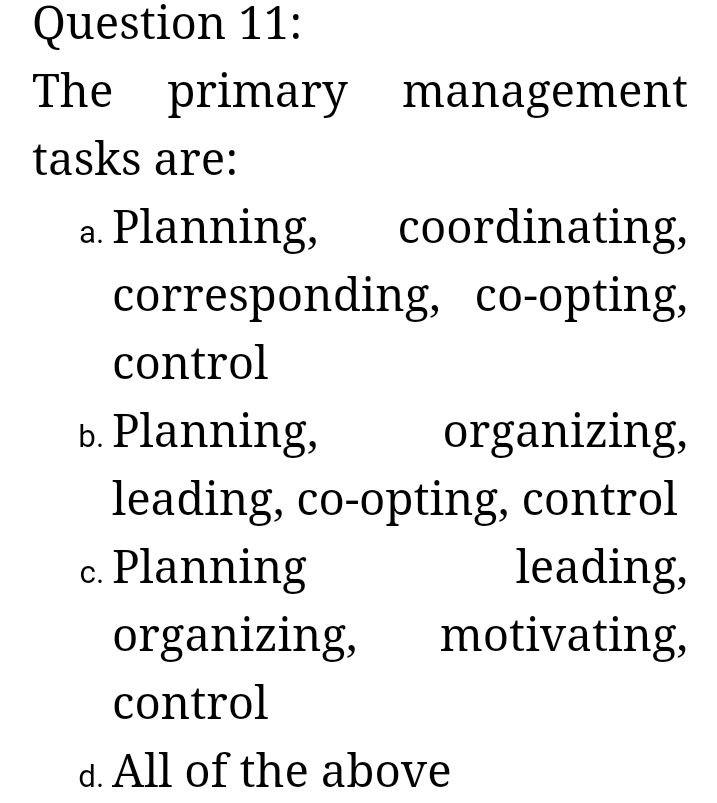
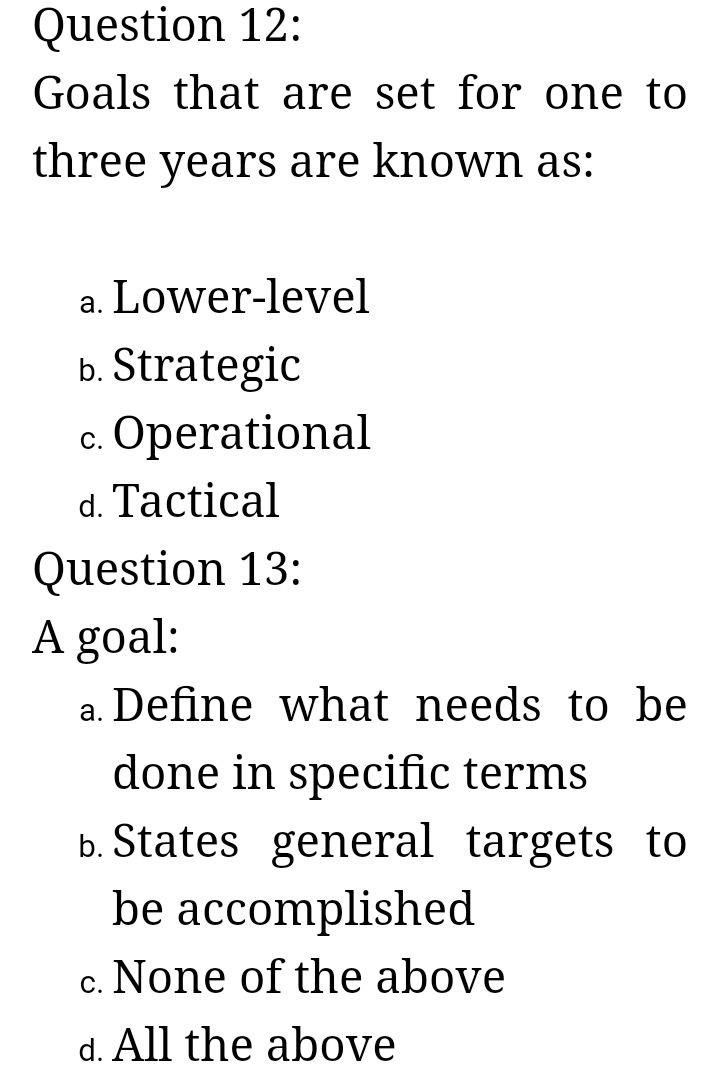
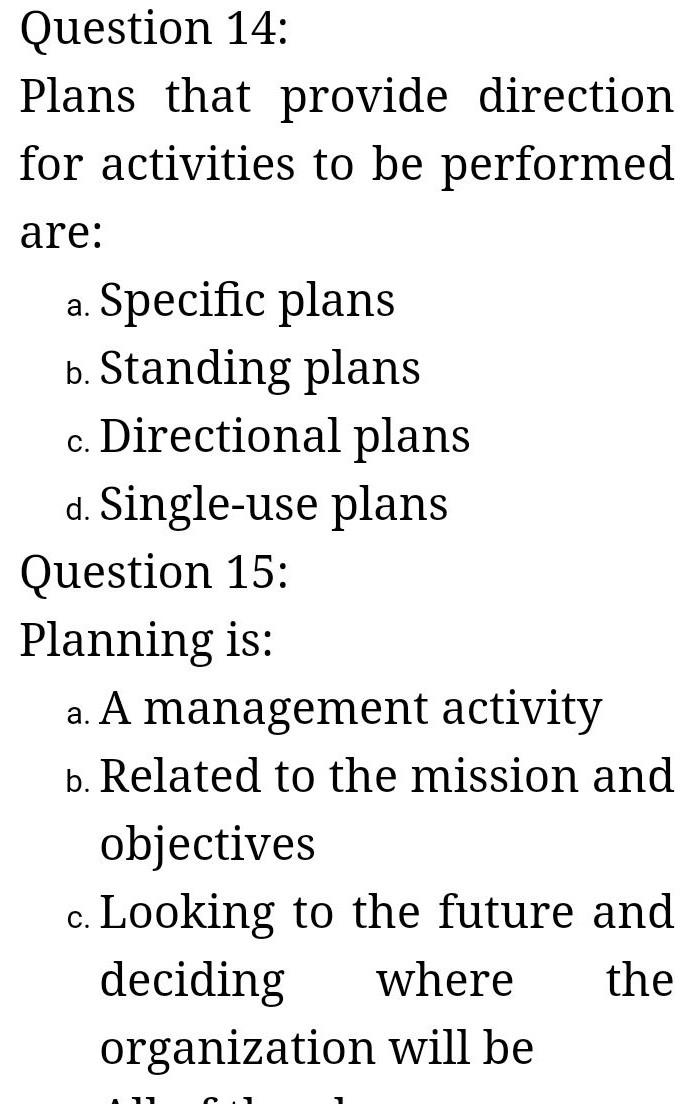
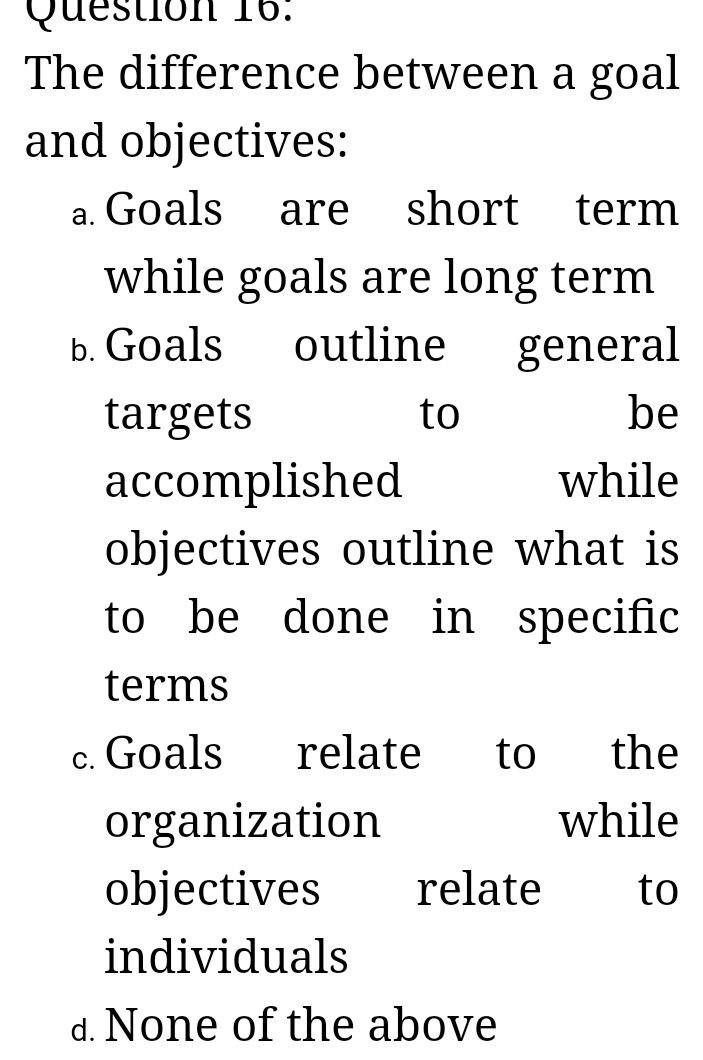
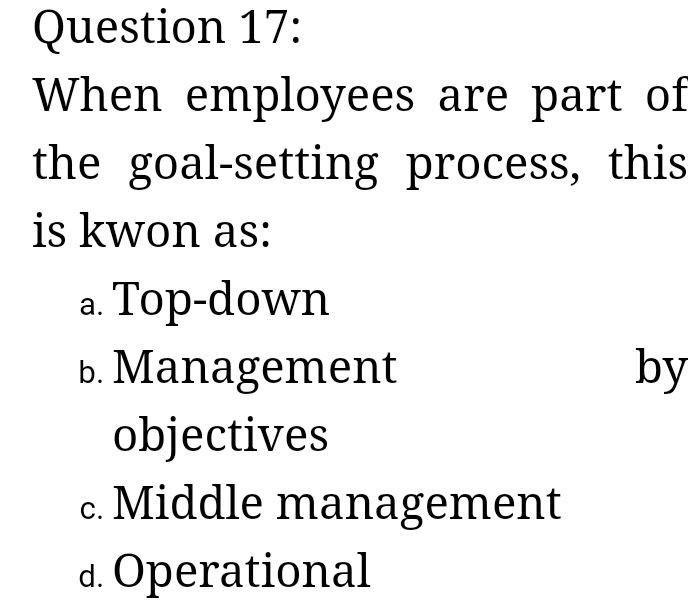
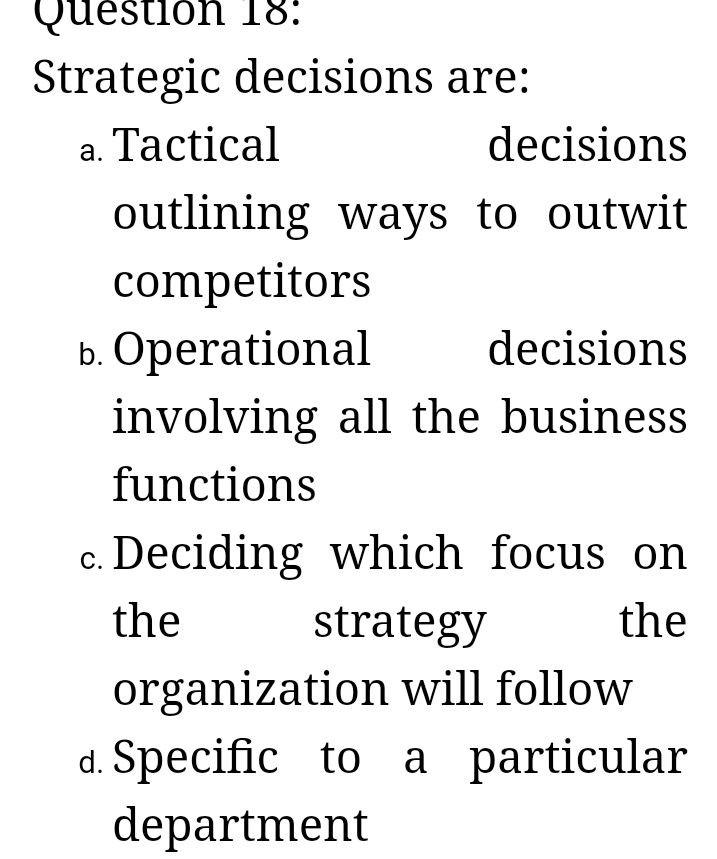
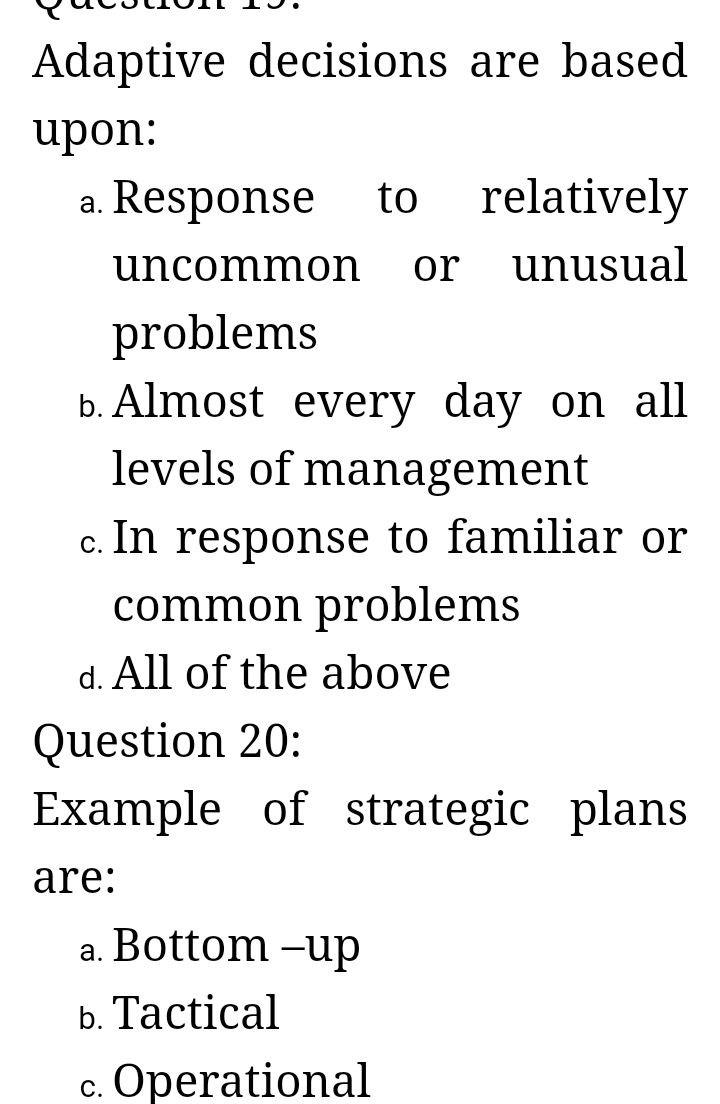
business management
Question 1: The management team of an organization can control all external forces or factors. A. True B. False Question 2: Planning is essential because through planning any negative outcomes outcomes can be completely eliminated. A. True B. False Question 3: The SMART principle is commonly cited as vital in goal setting A. True B. False question 4) Organizational design is based on the current structure of the organization according to certain criteria and purposes. A. True B. False Question 5: Organizational strategy combines the various dimensions of management i.e. planning, organizing, leading and control. A. True B. False Question 6: In the management process of organizing the first step is to determine and state the organizational objectives. A. True B. False Question : The key elements of a successful manager require; authority, power, responsibility and accountability. A. True B. False Question 8: According to the Companies Act 71 of 2008, public enterprises do not have members of the public as shareholders. A. True B. False Question 9: The main functional areas of a business include; Finance, Marketing, Public relations, Operations and Purchasing. A. True B. False Question 10: The size, staff competence, organizational culture and climate are key factors which influence the organizational process. A. True B. False Question 1: Typical job titles of middle management include the following: a. Supervisor, managing director, HR manager b. Facilities manager, plant manager, CEO and marketing manager, head of department, operations manager. d. Sales manager, logistics manager, team leader c. Sales a. Question 2: The three main groups of managerial roles identified by Mintzberg are: Informational, interpersonal, decisional b. Decisional, interpersonal, intrapersonal c. Intrapersonal, communicational, informational d. Entrepreneurial, intrapersonal, decisional Question 3: The disseminator role require that managers: a. Keep abreast of developments in the relevant industry b. Share crucial information with those inside and outside the organization c. Make use of relevant information to inform decisions d. Make use of the organization's resources effectively Question 4: Human skills include: a. Communication and negotiation skills b. Administrative and computer skills c. The ability to understand abstract ideas ability to apply technical skills d. The Question 5: Organizations such as Johannesburg Country Club and Starfish Foundation can be classified as, what type of organization: a. Commercial b. Governmental c. Voluntary d. Non-profit Question 72 Which of the following skills are important for managers to be effective: a. Cognitive, technical and human skills b. Conceptual, interpersonal and industry expert skills Technical, communication and reasoning skills d. Intrapersonal, human and technical skills C. Question 8: Identify one of the list of examples below of a cognitive skill as part of interpersonal competency: a. Coping with set-backs and challenges b. Self-management skills c. The ability to present an argument d. Time management skills same Question 9: For an Human resources manager to be effective, he/she should display the following important technical skill: a. Get along with colleagues within the department b. Communicate effectively with employee queries c. Understand and keep abreast of the current labor legislation d. Deliver persuasive arguments Question 10: The following is a crucial cognitive skill for a marketing manager: a. Computer proficiency in market research software b. Being able to write and deliver excellent presentations c. Effective interpersonal skills d. Analyzing and responding to a competitors change in marketing strategy Question 11: The primary management tasks are: a. Planning, coordinating, corresponding, co-opting, control b. Planning, organizing, leading, co-opting, control c. Planning leading, organizing, motivating, control d. All of the above Question 12: Goals that are set for one to three years are known as: a. Lower-level b. Strategic c. Operational d. Tactical Question 13: A goal: a. Define what needs to be done in specific terms b. States general targets to be accomplished c. None of the above d. All the above Question 14: Plans that provide direction for activities to be performed are: a. Specific plans b. Standing plans c. Directional plans d. Single-use plans Question 15: Planning is: a. A management activity b. Related to the mission and objectives c. Looking to the future and deciding where the organization will be on 16. The difference between a goal and objectives: a. Goals are short term while goals are long term b. Goals outline general targets to be accomplished while objectives outline what is to be done in specific terms c. Goals relate to the organization while objectives relate to individuals d. None of the above Question 17: When employees are part of the goal-setting process, this is kwon as: a. Top-down b. Management by objectives c. Middle management d. Operational Question 18 Strategic decisions are: a. Tactical decisions outlining ways to outwit competitors b. Operational decisions involving all the business functions c. Deciding which focus on the strategy the organization will follow d. Specific to a particular department or Adaptive decisions are based upon: Response to relatively uncommon unusual problems b. Almost every day on all levels of management c. In response to familiar or common problems d. All of the above Question 20: Example of strategic plans are: a. Bottom-up b. Tactical c. OperationalStep by Step Solution
There are 3 Steps involved in it
Step: 1

Get Instant Access to Expert-Tailored Solutions
See step-by-step solutions with expert insights and AI powered tools for academic success
Step: 2

Step: 3

Ace Your Homework with AI
Get the answers you need in no time with our AI-driven, step-by-step assistance
Get Started


